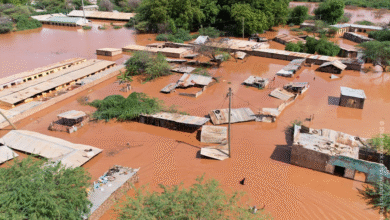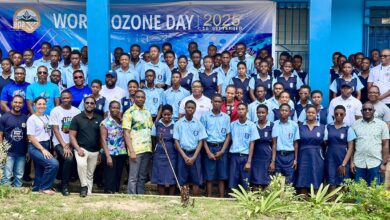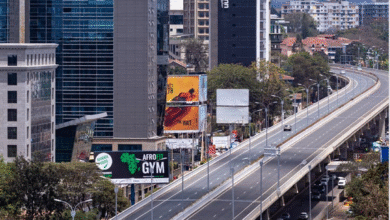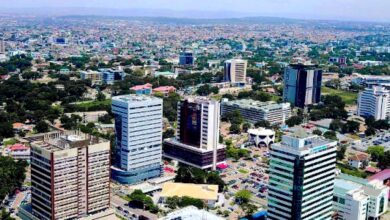MDBs Step Up Climate Finance Commitments, Pledge $42bn for Resilience by 2030

Multilateral Development Banks (MDBs) have renewed their commitment to scale up climate finance, describing investment in climate adaptation and resilience as a critical pathway for global development rather than a financial burden.
The pledge came on Monday during a high-level panel discussion organised by the Climate Investment Funds (CIF) at the opening of the 30th United Nations Climate Conference (COP30) in Belém, Brazil. The two-week summit, running from November 10 to 21, is expected to shape global strategies for climate action and finance ahead of 2030.
Climate Resilience: From Cost to Opportunity
At the CIF side event themed “Accelerating Large-Scale Climate Change Adaptation,” MDB representatives underscored the urgency of scaling climate investments and integrating resilience into mainstream development planning.
“Financing climate resilience is not a cost, but an investment,” said Ilan Goldfajn, President of the Inter-American Development Bank Group. He announced that MDBs would triple their financing for climate resilience over the next decade, targeting about $42 billion by 2030.
Goldfajn noted that the shift toward proactive investment is essential to protecting livelihoods and creating new growth opportunities. “We are turning preparedness into protection and resilience into opportunity,” he said.
Tanja Faller, Director of Technical Evaluation and Monitoring at the Council of Europe Development Bank, highlighted the social dimensions of climate change. “Climate change not only creates new threats but also amplifies existing inequalities. The most vulnerable are hit first and recover last. This is how a climate crisis becomes a social crisis,” she said.
Representatives from several MDBs—including the African Development Bank (AfDB), the Asian Development Bank (ADB), the Islamic Development Bank (IsDB), and the World Bank Group—shared examples of projects that have successfully mobilized finance for adaptation and built resilience among vulnerable populations.
Africa Takes the Lead in Climate Adaptation
The African Development Bank (AfDB) showcased its growing leadership in climate action through innovative financing and youth-focused initiatives.
Kevin Kariuki, the Bank’s Vice President for Power, Energy, Climate and Green Growth, said the AfDB’s interventions are rooted in the dual priorities of adaptation and mitigation.
He pointed to the Climate Action Window, a new mechanism under the African Development Fund that supports adaptation projects in low-income African countries.
“The African Development Bank is the only multilateral development bank with a portfolio of adaptation projects ready for investment through this mechanism,” Kariuki said.
He noted that the initiative has already attracted strong support from partners including Germany, the United Kingdom, and Switzerland.
Kariuki also highlighted the YouthADAPT programme, which has invested $5.4 million in 41 youth-led enterprises across 20 African countries. The initiative has generated over 10,000 jobs—61 percent of them led by women—and mobilised an additional $7 million in private and donor funding.
Representatives from Zambia, Mozambique, and Jamaica shared similar success stories, emphasising how locally driven adaptation projects can help communities most exposed to climate shocks recover faster and build long-term resilience.
A Call for Global Action and Equity
The discussions followed the official opening of COP30 by Brazilian President Luiz Inácio Lula da Silva, who made an impassioned appeal for stronger global investment in climate action.
“Without the Paris Agreement, we would see a 4–5°C rise in global temperatures,” Lula warned. “We must honour our commitments, accelerate the move away from fossil fuels and deforestation, and put people at the heart of climate action. The climate emergency is a crisis of inequality.”
Outgoing COP President Mukhtar Babayev of Azerbaijan called on developed nations to deliver on their $300 billion climate finance commitment, urging greater political will and stronger multilateral cooperation before handing over the presidency to Brazilian diplomat André Corrêa do Lago.
Turning Pledges into Action
As COP30 continues in Belém, MDBs face renewed pressure to translate climate pledges into tangible action—particularly in regions like Africa, where the financing gap for adaptation remains wide.
The shared message from the opening day was clear: climate resilience must be treated not as a side note, but as a central pillar of sustainable development and global equity.




